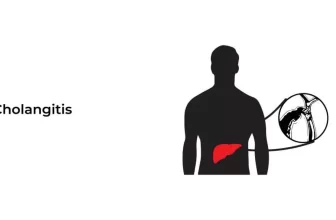Melena is a condition in which stool turns black and tarry, indicating the issues such as bleeding in the stomach, on the right side of the colon, and in the small intestine. This issue may appear due to changing diet or taking medication that changes your stool color, but it is a clear sign of a medical problem. Contact your doctor immediately if you notice black stools.
Causes
- Dark-colored foods: Sometimes, having black or tarry stools isn’t alarming for you; it just happens because you take dark-colored foods, which can turn your poop into black or tarry. These foods involve blueberries, black licorice, beets, grape juice, or dark chocolate cookies.
- Bismuth: The medicines with an amount of bismuth subsalicylate like Pepto-Bismol turn your stool black. Taking bismuth for a more extended period can also turn your teeth and tongue black.
- Iron supplements: People will take iron supplements due to blood deficiency problems (anemia). In anemia, the person’s blood gets lowered than usual, and the patient will take iron supplements to manage the blood level in the body. These supplements are Elite Iron, Accrufer, Bifea, Fermiron, and many more, and these supplements can also turn the patient’s stool into a black or tarry color.
- Ulcer: Ulcers are open sores present on the stomach and small intestine lining. The ulcer can cause indigestion, unwellness, heartburn, and a burning sensation in the stomach. But when the ulcer in the body turned into a severe condition, it started bleeding, resulting in black or tarry stools. This condition is called melena which is a sign of upper gastrointestinal bleed. Hyori, alcohol, and NSAIDs are significant reasons behind ulcers.
- Upper gastrointestinal bleeding: Some other diseases like ulcers can cause bleeding in the upper GI tract, leading to black stools. The diseases or conditions that cause bleeding in the upper digestive tract are gastritis, Mallory-Weiss syndrome, esophagitis, and stomach cancer. These conditions are severe and can be fatal; immediately contact your doctor if you notice black stool with stomach aches and vomiting.
- Esophageal Varices: The esophagus is a tube that carries foods and liquids to the stomach. Cirrhosis is used to describe the complication of liver disease; in this condition, the veins inside the esophagus get swollen or ruptured, which ultimately turns the stool into a black or tarry color. Contact your doctor immediately if you are experiencing black stools with jaundice, muscle cramp, stomach discomfort, and sudden weight loss.
- Esophageal and Gastric Cancer: Due to the bleeding in the GI tract, a person will experience black stool (a sign of esophageal and gastric cancer). If you suffer from chest pain, coughing, indigestion, weight loss, stomach pain, nausea, or vomiting while having a black stool, this is a clear sign of esophageal or gastric cancer.
- Mallory-Weiss tear: Due to intense coughing or vomiting, damage occurs in the esophagus, which can cause bleeding; this condition is called Mallory-Weiss tear. Due to this bleeding, a person will also experience black stools.
When to visit a Doctor
If you see some of the following symptoms and black stool in the body. You have to consult immediately with your doctor because the condition may be severe or may get from mild to severe over time:
- Blood in vomit
- Chest pain
- Shortness of breath
- Uncontrolled bleeding in stool
- Feel lightheaded, fainted, or dizzy
- Experiencing difficulty and confusion while thinking
- Feeling severe pain In the GI tract
Diagnosis:
During Diagnosis, your doctor may ask you about your medical history and conduct your physical examination to know the exact cause behind your unusual stool color. He may ask for further testing like a blood test, a stool test (a stool sample will be collected in the lab for detection of disease), and an X-ray (detect the problem in the digestive tract). Moreover, your doctor can also order some other tests to see the actual reason and prescribe treatment accordingly. These two tests are:
- Colonoscopy: Colonoscopy can be taken place when you are under sedation. The doctor will insert a thin, flexible tube with a camera over it into your body. This tube goes through your anus into your rectum to get an inside view of the colon. This technique is helpful in getting the real cause behind the disease.
- Gastroscopy: Gastroscopy is closely similar to colonoscopy. In this test, a thin, flexible tube is also inserted into the patient’s mouth to diagnose the stomach, esophagus, and small intestine diseases.
Treatment:
The treatment of black stool varies from disease to disease. Usually, the treatment is based on the cause behind it. If the doctor finds out the actual cause, it is easy to treat this problem further.
- If you are taking a lot of blueberries, blackberries, or darker foods daily, try to skip this food or limit their intake to know the difference, this is also helpful in finding the cause and treating the black stool issue.
- Try to do the same thing with iron supplements; try to limit their use or skip them for a few days to either create this issue of black stool or not. If you discover that this is the issue behind your black stool, consult with your doctor to get safe alternatives.
- If the ulcer creates this issue, it needs to be treated with proper medication. The medication that treats ulcers in milder cases are:
- Proton pump inhibitors (PPIs) reduce the amount of acid in the stomach to treat ulcers.
- Antacids
- H2 receptor antagonists help to reduce the amount of acid in the stomach.
- Lessen the use of nonsteroidal anti-inflammatory drugs (NSAIDS).
- Surgery is also a necessary procedure that helps treat black stool, but it can only be applied in severe cases. If the black stool is due to GI tract bleeding, then your treatment depends on the severity of the disease.
References:
- https://medlineplus.gov/ency/article/003130.htm#:~:text=Black%20or%20tarry%20stools%20with,used%20to%20describe%20this%20finding retrieved on April 16, 2022.
- https://www.webmd.com/digestive-disorders/black-tarry-stool-reasons retrieved on April 16, 2022.
- https://www.healthline.com/health/bloody-or-tarry-stools retrieved on April 16, 2022.
- https://www.buoyhealth.com/learn/black-stool#emergency-care retrieved on April 16, 2022.







